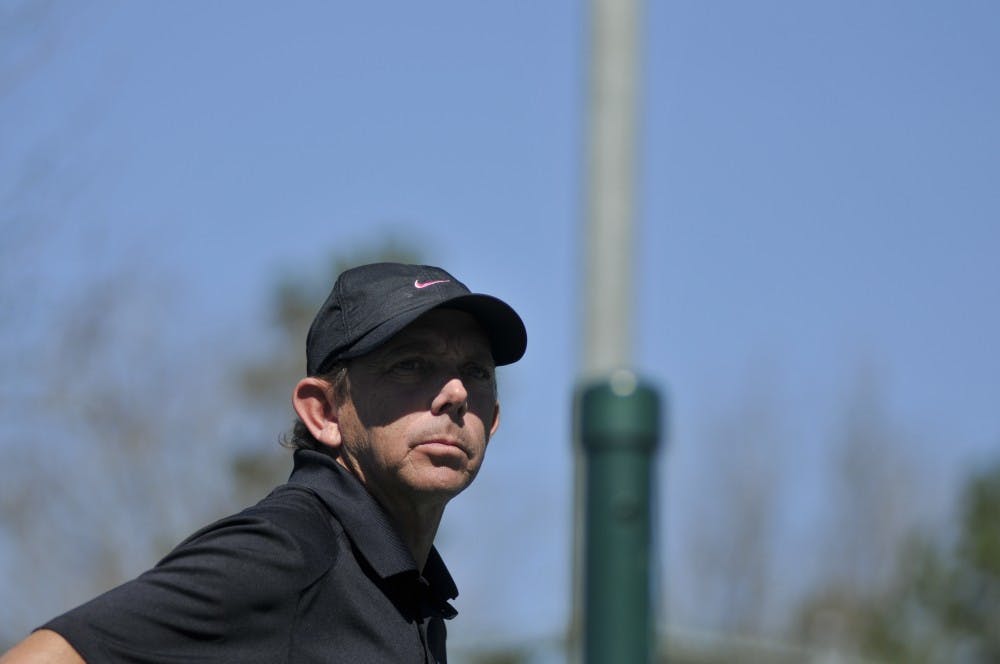Late in the North Carolina women’s tennis team’s match on Sunday afternoon — with UNC’s Alexa Graham clinging to a 6-4, 5-4 lead on court two — a normally mild-tempered Brian Kalbas exploded.
The head coach, who had been monitoring No. 3 Graham’s court for most of the afternoon, knew this particular match’s outcome would determine who would win. And he wouldn’t let the moment escape his team.
“Your talent isn’t going to win you the match,” Kalbas told his team prior to the contest. “There are so many intangibles that are going to be the difference maker.”
On the fateful point, Kalbas thought he saw Graham’s opponent sail a forehand deep, just as Graham had called it. The on-court umpire, however, overruled Graham’s call — and Kalbas’s hat almost came off. “That ball was clearly out,” he said, exploding from his station on the bench. “This is ridiculous!”
In Kalbas's reaction, the spectators on hand saw an interesting sports phenomenon in motion: A coach is often looked to as a symbol of poise, a modem of unwavering temperament, someone that reminds the team to stay the course when emotions run high.
But in certain moments — like when a baseball manager willingly gets ejected from a game, for example, or when Roy Williams yanks his blazer off his back and throws it behind his team’s bench — a coach seizes the moment with rage.
It’s a way to protect players. To show engagement.
And sometimes, as was proven in North Carolina’s (20-1, 8-0 ACC) 4-3 win over Miami on Sunday morning, it can be the sequence that tips the momentum of a match.
“I mean it really pumps you up,” said Sara Daavettila, who won both her singles and doubles matches on Sunday. “Like for Alexa, after that happened, she got really energetic, and like you saw, she just used his energy and played better.”




